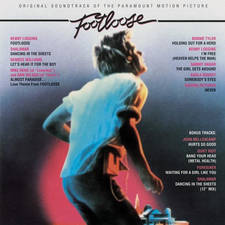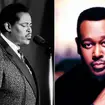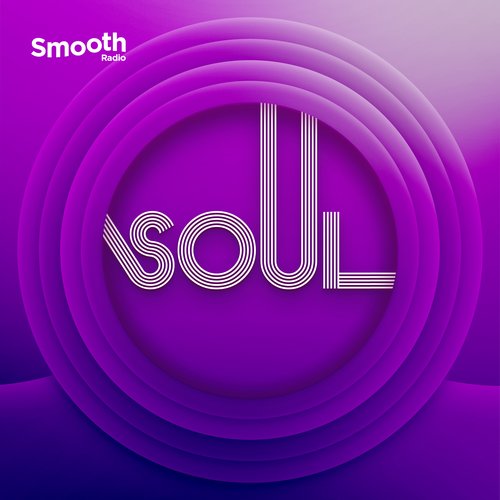10 powerful songs about Black History: From Aretha Franklin, Michael Jackson, Stevie Wonder and more
14 October 2021, 16:28

Aretha Franklin, Stevie Wonder and Michael Jackson are among some of the artists who explored Black history in their music.
Many iconic singers that we are familiar with have written and/or performed songs relating to the historical experiences that Black people have gone through as well as their own personal journey with their heritage and identity.
These songs share the difficult stories of injustice while also highlighting the hope for change and equality amongst all people.
Here are 10 powerful songs that highlight Black history and the importance of the fight for equal rights.
-
Michael Jackson - They Don’t Care About Us

Michael Jackson – They Don’t Care About Us (2020)
‘They Don’t Care About Us’ was produced, written and performed by Michael Jackson. It was the fifth single to come from his 1995 album HIStory: Past, Present and Future—Book I.
The track had global success as it landed in the top 10 official music charts in 16 countries. It also went to number one in Germany, Italy, Hungary and the Czech Republic.
It’s thought that Michael wrote the track to highlight injustice and to fight against all forms of prejudice. Michael recorded two music videos for ‘They Don’t Care About Us’ and Spike Lee directed both of them. The first one was filmed in South America and the second was filmed in a prison.
Read more: Smooth Icons 2021: Michael Jackson is voted the greatest artist of all time
-
Aretha Franklin - Respect

Respect - Aretha Franklin
Aretha Franklin’s iconic hit ‘Respect’ was released in 1967. The song reflected the racial and gendered political movements of its time. Aretha described ‘Respect’ as a soundtrack of “monumental significance”. She also said that it reflected “the need of a nation” at the time of its release.
“It [reflected] the need of a nation, the need of the average man and woman in the street, the businessman, the mother, the fireman, the teacher—everyone wanted respect,” Aretha wrote in her memoir, Aretha: From These Roots.
“It was also one of the battle cries of the civil rights movement. The song took on monumental significance.”
-
Marvin Gaye - What’s Going On

Marvin Gaye - What's Going On (Official Video 2019)
Marvin Gaye’s ‘What’s Going On’ is one of the most poignant soundtracks of its time and many of the issues raised in the 1971 track are still relevant today. ‘What’s Going On’ highlighted the injustice and racism that was rampant at the time of its release.
In the summer of 1970, Motown Records founder Berry Gordy refused to release ‘What’s Going On’ because he thought it was too political. After several months, Marvin convinced Berry that the track was worth putting out and it went on to be one of Marvin’s most popular songs of all time.
Berry spoke to TMZ several years ago and mentioned that Marvin was “determined” to put the song out.
"I was extremely happy that I released it because it was the biggest record at that time," Berry explained.
"But Marvin was so determined, and such a beautiful person was Marvin. And he fought everything that he thought was injustice and he wanted to speak about -- he had a brother in Vietnam -- and he convinced me that we should try it. But I didn't think it was going to work."
He continued: "But it did and it was very successful. He was a very true artist and I miss him a lot."
Read more: The Story of... 'What's Going On' by Marvin Gaye
-
Stevie Wonder - Black Man

Stevie Wonder - Black Man - Boston Garden - 11/11/14
Stevie Wonder recorded ‘Black Man’ as part of his 1976 album Songs In The Key of Life. Stevie produced, co-wrote and performed the track that shared the vision he had for racial equality.
While some of the terminology used in ‘Black Man’ is no longer culturally acceptable, Stevie uses the lyrics to educate listeners on American history. He lists prominent and lesser-known figures from different heritages and highlights their role in history.
-
Bob Marley - Redemption Song

Bob Marley & The Wailers - Redemption Song
‘Redemption Song’ was released by Bob Marley in 1980 and it appeared on his album Uprising. It is one of Bob’s most well-known songs and it is also one of his most empowering songs.
Bob uses the lyrics of the ‘Redemption Song’ to share his vision and hopes for equality and freedom of all people. The lyrics were influenced by activist and speaker Marcus Garvey and one of his speeches titled 'The Work That Has Been Done'.
Read more: Bob Marley's 15 greatest ever songs, ranked
-
Sam Cooke - A Change Is Gonna Come

Sam Cooke - A Change Is Gonna Come (Official Lyric Video)
Sam Cooke’s track ‘A Change Is Gonna Come’ was another song that stands out in the soundtrack to the civil rights movement. Sam never got to see the track’s lasting impact as it was released in December 1964 - two weeks after Sam was shot dead in Los Angeles, California.
It’s thought that Sam wrote ‘A Change Is Gonna Come’ in response to Bob Dylan’s track ‘Blowin’ In The Wind’. The track has been covered by many artists including Aretha Franklin, Otis Redding and the Fugees.
-
Nina Simone - I Wish I Knew (How It Would Feel To Be Free)

Nina Simone - I Wish I Knew (How It Would Feel To Be Free) (Live at Montreux, 1976)
Nina Simone recorded ‘I Wish I Knew (How It Would Feel To Be Free)’ in 1967 and it appeared on her album Silk and Soul.
Originally, the song was written as an instrumental piece by composer Billy Taylor and the first recording appeared on his 1963 album Right Here, Right Now. Later on, Billy added lyrics to the track and Nina performed her own version.
Nina’s version of ‘I Wish I Knew (How It Would Feel To Be Free)’ gave the track new meaning and echoed the story of the civil rights movement at the time.
Read more: John Legend's haunting version of Nina Simone's 'Feeling Good' at the inauguration was sensational
-
James Brown - Say It Loud (I’m Black and Proud)

Say it Loud- I'm Black and Proud James Brown
James Brown released ‘Say It Loud (I’m Black and Proud)’ in August 1968 and it later appeared on his Christmas album titled Soulful Christmas.
‘Say It Loud (I’m Black and Proud)’ was co-written by James and one of his band members Alfred Ellis. It was released several months after Dr Martin Luther King’s assassination.
While many artists spoke about equality and the civil rights movement, ‘Say It Loud (I’m Black and Proud)’ was one of the stand out songs of that period of time. This was due to its clear message of celebrating being of black heritage.
-
Louis Armstrong - Black and Blue

Louis Armstrong - Black And Blue
‘Black and Blue’ was originally written in 1929 by Thomas Waller, Harry Brooks and Andy Razaf for the Broadway musical Hot Chocolates. Louis Armstrong was part of the Hot Chocolates production and was regularly featured in the show.
While there are numerous recordings of Louis’ version of ‘Black and Blue’ - he made his biggest impact with the song in the mid-1960s. This was down to the combination of Louis’ vocal power and the song reflecting that period of time in history.
Read more: 7 of the best Louis Armstrong songs
-
Mariah Carey - There’s Got To Be A Way

Mariah Carey - There's Got to Be a Way (Official HD Video)
Mariah Carey co-wrote ‘There’s Got To Be A Way’ with Ric Wake and it appeared on her self-titled debut album in 1990.
The song has a clear theme of hope and also addresses the issue of discrimination in all of its forms.
Last year, Mariah performed an acapella version of 'There's Got To Be A Way' and uploaded it to her Instagram in response to the murder of George Floyd.
Mariah's video caption reads: "I wrote this song for my first album. Still looking for answers today. We have to make a change. We can't be silent. #BlackLivesMatter"























